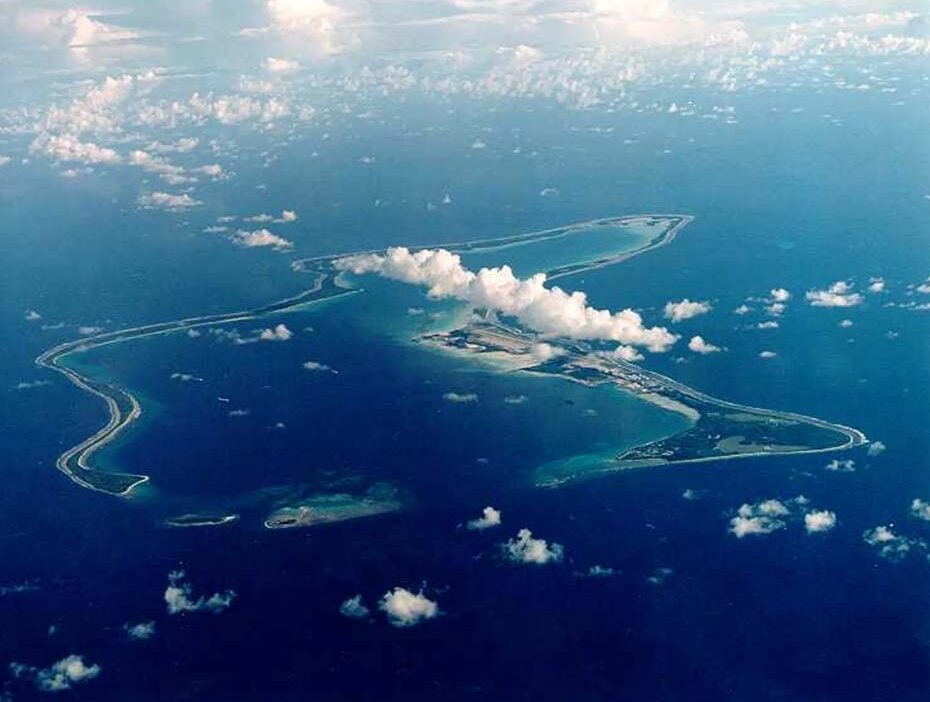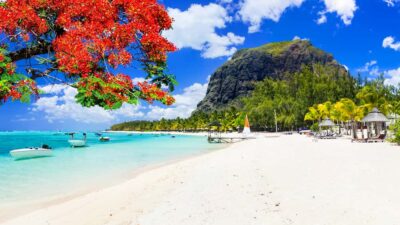The recent agreement between the United Kingdom and Mauritius, signed on May 22, 2025, marks a historic milestone in the decades-long dispute over the Chagos Archipelago. The UK’s decision to cede sovereignty of the islands to Mauritius, while retaining control of the Diego Garcia military base under a 99-year lease, not only resolves a colonial-era injustice but also presents Mauritius with a unique opportunity to address its pressing economic challenges. The deal includes substantial financial support from the UK, with annual payments of approximately £101 million (around US$136 million), alongside infrastructure investments and a trust fund to support the Chagossian community. This article explores how Mauritius can leverage these funds to navigate its current economic crisis, foster sustainable growth, and rebuild its national viability, drawing on strategic and inclusive approaches to maximize long-term benefits.
Mauritius’ Current Economic Crisis: A Contextual Overview
Mauritius faces a multifaceted economic crisis characterized by structural vulnerabilities and external pressures. Historically reliant on tourism, offshore financial services, and foreign aid, the economy has struggled to diversify, leaving it exposed to global shocks. Key challenges include:
- Slow Economic Diversification: The offshore financial sector, once a pillar of growth, faces global scrutiny for its role as a tax haven, prompting calls for reform. Tourism, while lucrative, is vulnerable to climate-related risks and global travel disruptions.
- Rising Youth Unemployment: A growing youth population faces limited job opportunities, exacerbating social tensions and hindering economic dynamism.
- Climate Vulnerability: As a small island nation, Mauritius is highly susceptible to rising sea levels, extreme weather events, and marine ecosystem degradation, which threaten agriculture, fisheries, and tourism.
- Fiscal Pressures: High public debt, coupled with a budget crisis, has constrained the government’s ability to invest in critical sectors like education, health, and infrastructure. Recent reports indicate Mauritius plans to use initial UK payments to address this debt, potentially easing short-term fiscal strain but risking long-term dependency if not paired with structural reforms.
- Social Inequality: The Chagossian community, forcibly displaced in the 1960s and 1970s, faces marginalization in Mauritius, alongside broader socio-economic disparities that require inclusive policies.
The Chagos deal offers a financial lifeline to address these challenges, but the real test lies in transforming this diplomatic triumph into tangible economic progress. Without visionary planning, the funds risk being absorbed into recurrent spending or symbolic projects with limited impact. Below, we outline strategic ideas for deploying the UK payments to rebuild Mauritius’ economic viability, focusing on sustainable development, inclusivity, and global competitiveness.
Strategic Ideas for Utilizing UK Payments
1. Investing in the Blue Economy
Mauritius’ strategic location along major maritime trade routes positions it to capitalize on the blue economy, encompassing sustainable ocean-based industries like fisheries, aquaculture, marine renewable energy, and eco-tourism. The Chagos Archipelago, with its vast exclusive economic zone (EEZ), enhances this potential.
- Sustainable Fisheries and Aquaculture: Invest in modernizing fishing practices and developing aquaculture facilities to boost food security and exports. Training programs for local fishers, including Chagossians, can ensure inclusive growth. Partnerships with regional neighbors like Madagascar and Seychelles can foster shared expertise and markets.
- Marine Renewable Energy: Allocate funds to pilot offshore wind and tidal energy projects in the Chagos EEZ. These initiatives can reduce Mauritius’ reliance on fossil fuels, lower energy costs, and position the country as a leader in renewable energy in the Indian Ocean region.
- Marine Conservation and Eco-Tourism: Strengthen the Chagos Marine Protected Area, using UK funds to support conservation programs that attract high-value, low-impact tourism. Revenue from eco-tourism can fund community development and climate resilience projects.
By channeling funds into the blue economy, Mauritius can diversify its economic base, create jobs, and enhance climate resilience, addressing both unemployment and environmental vulnerabilities.
2. Building Digital Infrastructure and Innovation Ecosystems
To remain competitive in a volatile global economy, Mauritius must accelerate its digital transformation. The UK payments provide an opportunity to invest in digital infrastructure and foster innovation, particularly among the youth.
- Nationwide Broadband Expansion: Deploy funds to expand high-speed internet access across urban and rural areas, enabling remote work, e-commerce, and digital education. This can bridge the urban-rural divide and empower small businesses.
- Tech Incubators and Skills Training: Establish tech hubs in Port Louis and other regions, offering training in coding, AI, and cybersecurity. Partner with global tech firms to provide mentorship and market access for Mauritian startups. These hubs can prioritize youth and Chagossian participation, addressing unemployment and marginalization.
- E-Governance and Financial Technology: Invest in digital government services to improve transparency and efficiency. Support fintech startups to develop secure, inclusive financial products, reducing reliance on the offshore sector and aligning with global regulatory standards.
These investments can position Mauritius as a digital hub in the Indian Ocean, attracting foreign investment and creating high-skill jobs for its youth.
3. Enhancing Education and Healthcare Systems
Human capital development is critical for long-term economic viability. The UK funds can bolster Mauritius’ education and healthcare systems, ensuring a healthy, skilled workforce capable of driving innovation and growth.
- STEM Education Programs: Expand access to science, technology, engineering, and mathematics (STEM) education, particularly in underserved areas. Scholarships for Chagossian youth can promote inclusivity and address historical injustices. Partnerships with UK universities can facilitate knowledge transfer.
- Vocational Training Centers: Establish centers focused on blue economy and digital skills, offering certifications aligned with industry needs. These can reduce youth unemployment and support economic diversification.
- Healthcare Infrastructure: Upgrade hospitals and clinics, prioritizing rural and Chagossian communities. Invest in telemedicine to improve access in remote areas, enhancing resilience against future pandemics.
By prioritizing human capital, Mauritius can build a self-sustaining economy less dependent on external inflows, addressing both unemployment and inequality.
4. Supporting Chagossian Resettlement and Integration
The Chagos deal commits Mauritius to a resettlement program for Chagossians on islands other than Diego Garcia. Integrating this community into the national success story is a moral, legal, and strategic imperative.
- Resettlement Infrastructure: Use UK funds to develop sustainable housing, schools, and healthcare facilities on outer Chagos islands. Ensure environmental assessments to minimize ecological impact.
- Economic Inclusion: Provide Chagossians with training and microfinance to start businesses in fisheries, tourism, or crafts, leveraging their cultural heritage. Sega music and coconut-based products, central to Chagossian identity, can be marketed globally.
- Trust Fund Management: Transparently manage the Chagossian trust fund, involving community representatives to ensure funds address priority needs like education, housing, and cultural preservation.
Inclusive policies for Chagossians can strengthen social cohesion, enhance Mauritius’ international reputation, and unlock the community’s economic potential.
5. Strengthening Climate Resilience and Infrastructure
Climate change poses an existential threat to Mauritius, necessitating robust adaptation measures. The UK payments can fund infrastructure projects that enhance resilience and support sustainable growth.
- Coastal Protection and Renewable Infrastructure: Build seawalls, mangrove restoration projects, and solar-powered desalination plants to protect coastal communities and ensure water security. These can create jobs and safeguard tourism assets.
- Smart Urban Planning: Upgrade Port Louis and other cities with climate-resilient infrastructure, including flood-resistant roads and energy-efficient buildings. These projects can stimulate construction jobs and improve quality of life.
- Disaster Response Hubs: Establish regional logistics hubs in the Chagos Archipelago to support disaster response and maritime security. These can strengthen Mauritius’ role as a regional leader and attract international funding.
By prioritizing climate resilience, Mauritius can protect its economy from environmental risks and position itself as a model for small island nations.
6. Expanding Geopolitical and Trade Influence
The Chagos deal enhances Mauritius’ geopolitical stature, offering opportunities to expand trade and diplomatic influence. Strategic use of UK funds can amplify this advantage.
- Regional Trade Partnerships: Invest in port upgrades and logistics to facilitate trade with Africa, Asia, and the Middle East. Mauritius’ political stability and strong legal framework make it an ideal hub for regional commerce.
- Diplomatic Leadership: Fund initiatives to mediate regional maritime disputes, such as those involving India, Sri Lanka, and Madagascar. This can enhance Mauritius’ influence and attract development aid.
- Global Branding: Promote Mauritius as a sustainable investment destination through international campaigns. Highlight the Chagos deal as a model of decolonization and inclusive growth, attracting ethical investors.
By leveraging its geopolitical position, Mauritius can diversify revenue streams and reduce reliance on traditional sectors.
Ensuring Effective Implementation
To maximize the impact of these initiatives, Mauritius must adopt a forward-looking and inclusive strategy:
- Transparent Governance: Establish an independent oversight body to manage UK funds, ensuring accountability and preventing misuse. Public reporting can build trust and deter corruption.
- Stakeholder Engagement: Involve Chagossians, youth, and civil society in planning and implementation. This can ensure policies reflect community needs and foster national unity.
- Long-Term Vision: Develop a 20-year economic roadmap, aligning UK funds with national development goals. Avoid short-term populist measures, such as widespread tax cuts, which may undermine fiscal stability.
- Regional Collaboration: Partner with India, the African Union, and other allies to share expertise and resources, amplifying the impact of investments.
The Chagos deal represents a rare opportunity for Mauritius to transform a diplomatic triumph into a catalyst for economic renewal. By strategically deploying UK payments to invest in the blue economy, digital infrastructure, education, healthcare, Chagossian integration, climate resilience, and geopolitical influence, Mauritius can address its current crisis and build a resilient, inclusive, and globally competitive economy. The challenge lies in visionary planning and inclusive execution, ensuring that the benefits reach all Mauritians, particularly the marginalized Chagossian community. With bold leadership, Mauritius can turn this historic moment into a legacy of sustainable prosperity, setting a model for small island nations worldwide. a more inclusive and dynamic community.






I’ve already bookmarked this post for future reference. Your work is invaluable!
I’m thrilled the post made it to your bookmarks! Thanks for your support.
Wow, you’ve outdone yourself! This post is packed with useful tips and advice.